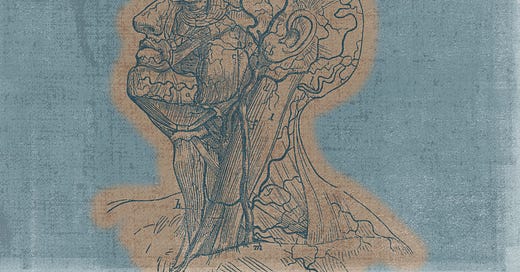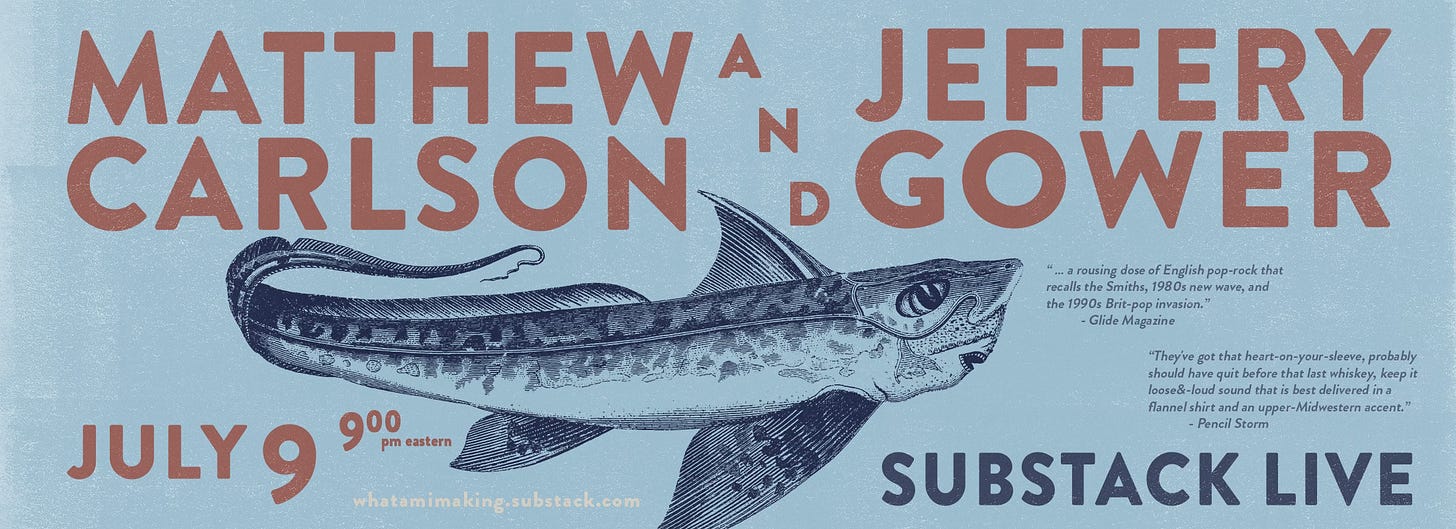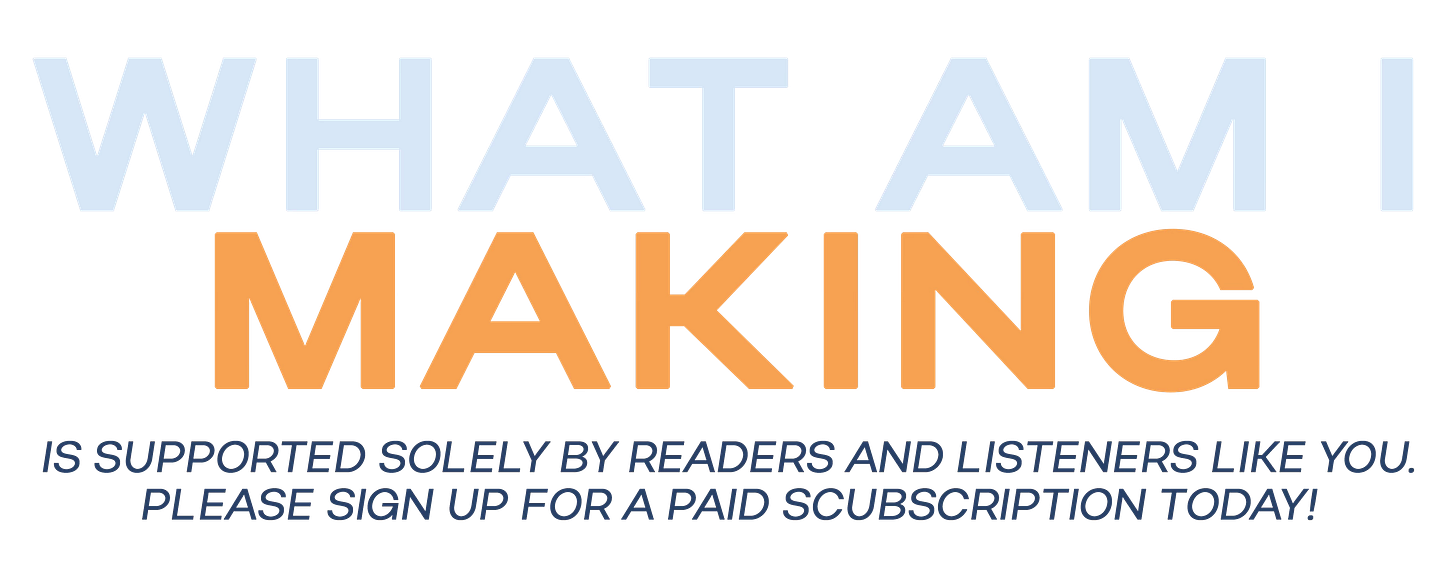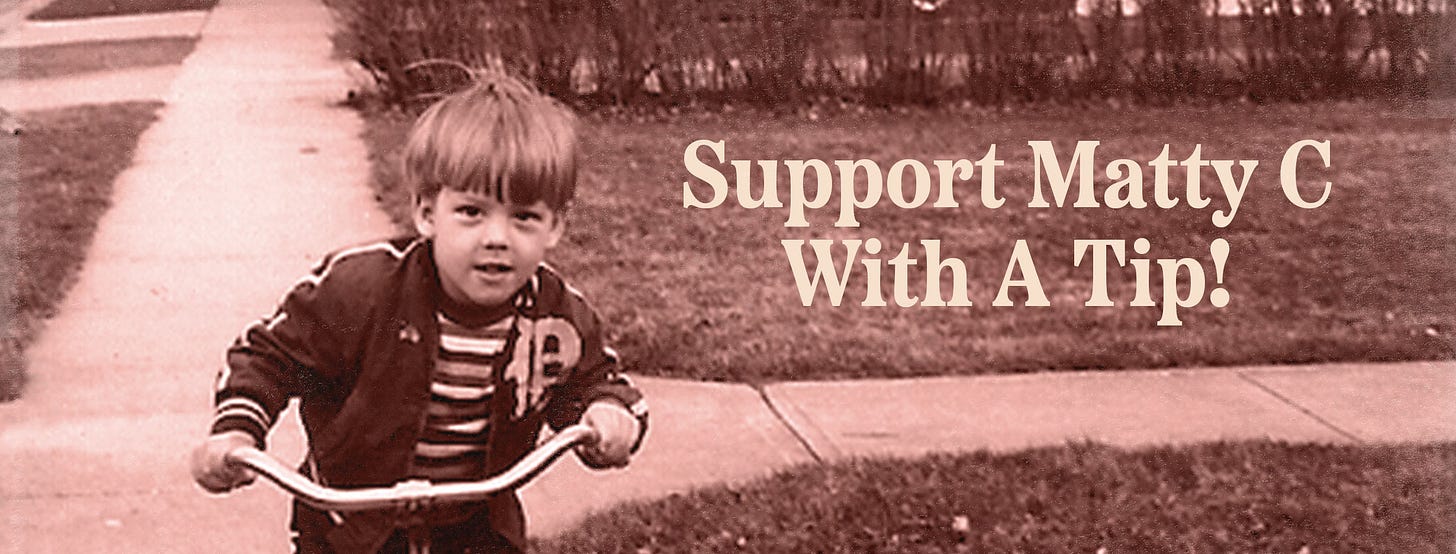Are We All Sick?
A long wait in line at the pharmacy has me wondering about the true state of our nation's mental health.
This piece is from the What Am I Making Archives. It was first published on February 28, 2024. This version has been lightly updated and edited for this posting.
It is crucial to remember in the context of this piece that our collective mental health as a country has only plummeted further since the piece was originally published as a result of the election and the ensuing political chaos that has ensued since then.
On a recent weeknight, I popped over to my local grocery/superstore to pick up prescriptions for my wife and myself. I’d made the error of coming at the busiest time of day between 5:00 and 6:00 pm. Much like the other commuters in my midst, we were all stopping for a handful of things on our respective ways home. Most notably, a larger number of us than usual needed to pick up drugs from the pharmacy.
The pharmacy at my local store is almost always busy. It’s customary to see a wait of two or three cars at the drive-thru. Inside, I typically have to wait behind a few people at most. On this particular night though, there were at least a dozen people in line in front of me. A large number of shoppers needed meds of varying stripes. It got me wondering why so many of us seem to need prescription drugs just to make it through our daily lives.
While I waited, I listened to a frustrated mother trying to sort out her child’s ADHD refill. For more than ten minutes, a pharmacy tech, the mother, and a pharmacist all tried to get to the bottom of the issue. While they fiddled with a series of system prompts, other customers passed through for their desired prescriptions. I did not intently eavesdrop, but I heard at least two other customers asking for meds that I knew from personal experience were used to treat anxiety. I wondered how many other folks in the line were there for mental health meds.
My sole intention at Meijer that evening was to pick up the meds that I use to treat ADHD, anxiety, and depression. I also needed to get anti-anxiety medications for my wife, Kimmy. Both of our daughters are also on these meds in varying doses as well. It runs in the family.
While we certainly have a verdant vein of mental illness coursing through our family history, I’d wager there are many families just like mine with most or all of the household treating anxiety, depression, or another mental illness with prescription meds, even without some of our family’s colorful mental health past. Anybody else have a long lost great-great grandmother who was institutionalized?
The gains in recent years around mental health awareness are a sign of progress on an issue that has long been stigmatized unfairly. In the twenty years since I was first diagnosed, I have seen a huge change in the way we talk about mental well being. As a society we are slowly improving in the way that we treat our mental health as an integral part of our total well-being. We have learned that the two are inextricably linked; without a stable emotional state, complete physical health is simply not possible.
As we have gradually become more comfortable as a society with concepts like talk therapy, medication, meditation, mindfulness, and other tools to promote good mental health, we have grown to understand that each of us needs to work on our own mental well-being to promote happiness for ourselves. Still, there are more folks than ever taking medications to battle diseases like anxiety and depression.
According to the Pharmaceutical Journal, between 2015 and 2021 the number of antidepressants prescribed in England rose by an astonishing 38%. By June of 2022, nearly 15% of residents in England were prescribed some form of antidepressant. In America by 2018, The CDC had clocked that number at a staggering 13.2% in the United States. To put that in context, 13.2% of all Americans in 2024 would be nearly 44 million people taking antidepressants. I’d also wager that the pre-Covid number of 13.2% has risen sharply as well. This is an epidemic. Millions of Americans rely on meds just to navigate their daily lives.
During the rise to 13.2% of Americans in antidepressant treatment, almost all of the growth came from women. The level of antidepressant medication for men stayed relatively flat during the same period. This indicates that there are likely a large number of men who have chosen, for one reason or another, not to utilize prescription meds as a way to treat their mental illness. It does not take a statistics expert to see that if men were as comfortable with this route of treatment as women are, the usage numbers would be even higher than the reported 13.2 %.
Back in line at the pharmacy I began to wonder what percentage we would need to reach to see that our way of life is truly broken? Is it 20% or 30%, or maybe half the population? Must we all be going mad for us to see that our supposed prosperity is making us ill?
I recently heard someone who was an expert in the field of neuro-divergent learning suggest, “If one third of your staff simply couldn't work the way you wanted them to, you’d have to shift the way you ran your office. With kids, we just medicate them and keep shoving the square peg in the round hole.”
This philosophy pounded inside my ears as I waited patiently for my Xanax, Adderall, and Citalopram. My Ciatolpram had run out a few days earlierOver the previous two days I had begun to experience the popping ears, and equilibrium oddness that happens in withdrawal from the drug. Thesemedications are extremely helpful to my system, but without them, I suffer from withdrawal as well as the symptoms the drugs are supposed to fight. Still, I waited.
One might think that the line at the pharmacy is all older folks and the infirmed, but you would be dead wrong. A pair of young women in their twenties waited a very long time for help. There were a couple of dudes on either side of my age bracket. An older couple stood next to each other and amiably chatted with a young man who appeared to be in his thirties. The line was hardly the elderly and indigent wing from the local hospital.
I’ll not pretend that my anecdotal visit to the pharmacy is a scientific foray into the wave of depression and anxiety coming down on us. Still, it’s hard to imagine why we seem to have so many people sicker than ever before. Perhaps this surge is indicative of the hyper-capitalization of the drug market. Maybe it’s the outgrowth of mental health awareness. Or maybe, we’re making ourselves sick.
The truth is that we are, at least to some degree, making ourselves sicker than we need to be. The margins have been ripped from life for most of us. The specter of climate change and the seeming fall of democracy are hardly blips on our radar system of existential fears. We are more technically connected than at any time in human history and yet we have a scourge of loneliness in adults, especially amongst middle aged men. The lives we are living are not sustainable. We are simply not happy. In our pursuit of unnatural ways of life, we have been forced to medicate ourselves to cope.
Instead of pursuing genuine happiness, we seek out meds to make us less sad or not-quite-so anxious. Covid afforded us an opportunity to reset and slow down. We eschewed that rare opportunity, and went back to life as though that traumatic health event never occurred. More than a million Americans died and here we are shrugging it off like a long weekend stuck in the airport.
Our lives seem stuck forever in DRIVE. Never resting. Never ceasing.
While millions of Americans like me rely on these drugs, perhaps the best medicine we could offer ourselves is time, space and grace. I have talked at length about a lack of joy that I felt when traveling in Nicaragua recently. Since my return from Central America I have noticed a lack of joy within my own country. Perhaps it’s time we found that joy again. In any case, I sincerely doubt that wherever that joy lies, we’re likely to find it at the bottom of a pill bottle.
Cheers,
Matty C








